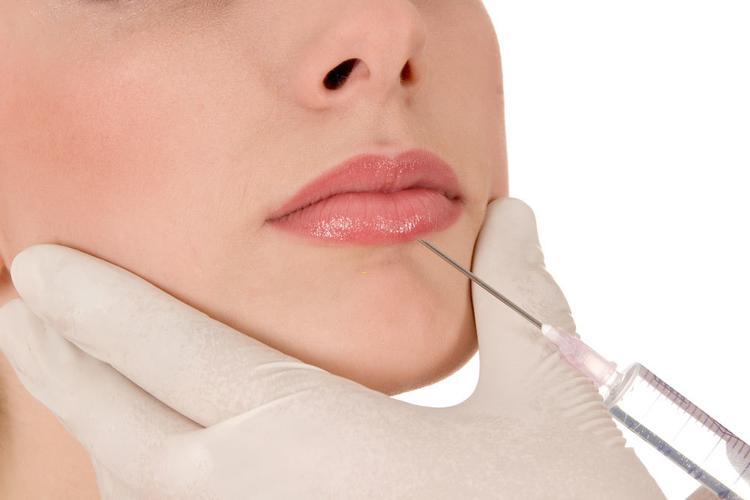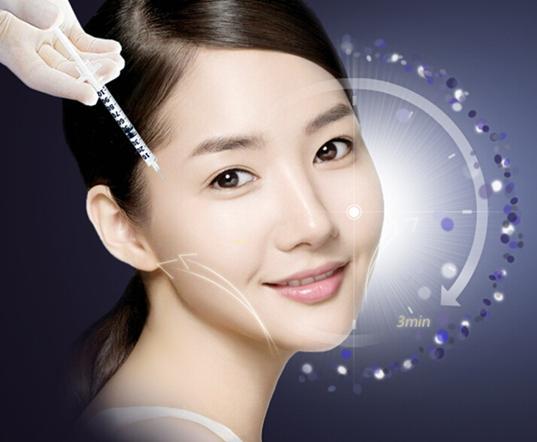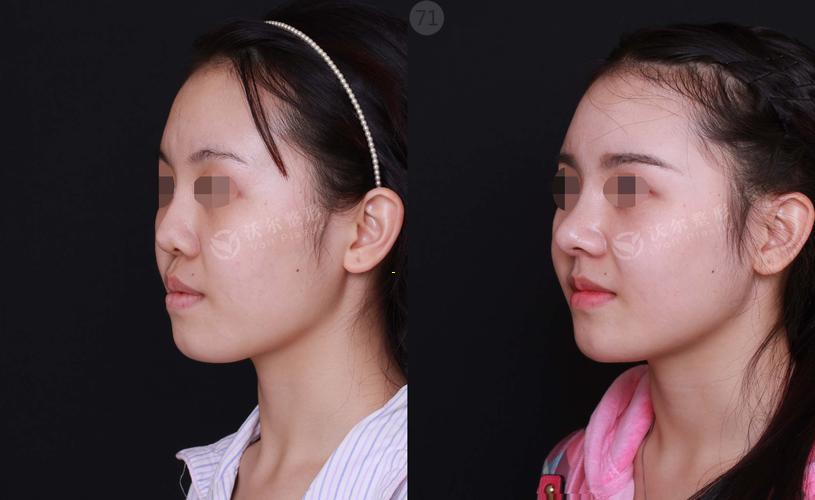
整容是现代社会中越来越流行的一种美容方式。不同的人对整容有不同的态度,而整容的人则有着各种各样的心理。本文将探讨整容的人是一种怎样的心理。
整容的人往往是对自己外貌不满意的人。他们希望通过整容来改变自己的外貌,达到自己心目中的完美形象。他们追求自己的外貌与他人认同的标准接近,以获得更多的自信和满足感。
现代社会对外貌的要求越来越高,人们被媒体、广告等渠道灌输着对美的标准。整容的人常常受到周围人的评价或嘲笑,他们为了摆脱这种负面的影响,通过整容来改变自己的外貌。他们希望通过美丽的外貌来获得社会的认可和接纳。
整容的人可能存在对自己外貌的扭曲认知,导致对自己的身体不满意或不接受。他们可能过度关注局部的不完美,导致对整体外貌的失衡认知。通过整容,他们试图修复自己的身体自我认同,来达到心理上的平衡。
整容的人认为,通过改变外貌可以获得更多的自信心。他们认为外貌可以影响自己的社交、职业以及个人发展。通过整容,他们期望自己在外貌上更具吸引力,从而提升自信心,迈出成功的一步。
整容的人有着各种各样的心理。无论是寻求完美的心理、社会压力的驱使,还是身体自我认同的失衡,整容的人都希望通过整容来改善自己的外貌和心理状态。然而,我们也应该意识到,真正的美丽来自内心的自信和健康的心理状态。

整容是一种改变外貌的方法,它可以通过手术或非手术的方式来调整身体的外观。整容的人通常是处于特定的心理状态下,他们对自己的外貌有着深刻的不满,并且希望通过整容来改变自己的形象。

整容的人往往存在自我认同的问题。他们认为自己的外貌与社会的期望有所差距,从而导致了对自己外貌的不满。他们常常觉得外貌不好的原因是他们无法得到社会的认同和接纳。
整容的人往往有着自尊心的受损。他们觉得自己的外貌不够好,无法与他人正常交往。在整容前,他们可能会遭受社交排斥、嘲笑或歧视,这些负面的体验进一步削弱了他们的自尊心。
整容的人通常有着追求完美的心理。他们希望通过整容来改变自己的外貌,从而达到自认为接近完美的标准。他们认为外貌与自身的自尊、自信以及幸福感密切相关,因此他们努力追求自己心目中的理想外貌。
整容的人在手术前后会经历情绪的波动。在手术前,他们充满了期待和希望;而在手术后,他们可能会经历焦虑、紧张以及对手术效果的担忧。这种情绪的波动可能会对他们的心理状态产生一定的影响。
整容的人往往对手术效果有着高期望。他们希望通过整容来改变自己的外貌,从而提升自己的自信和幸福感。然而,有些人可能会因为手术效果与期望不符而感到失望,导致对整容的心理状态产生变化。
对于整容的人来说,心理辅导是十分重要的。心理专家可以帮助他们理解自己的心理状态,提供支持和帮助他们建立良好的心理健康。通过心理辅导,整容的人有可能调整自己对外貌的认知,提升自我价值和接受自己。
整容的人处于一种对自己外貌不满的心理状态下。他们追求完美的心理驱使他们选择整容这种方式来改变自己的外貌。然而,整容手术并不是解决外貌不满问题的wei一方法,心理辅导也是十分重要的。只有通过全方位的调整和治疗,整容的人才能真正实现对自我的接纳和尊重。
The desire to alter one's physical appearance has become increasingly common in today's society. This phenomenon, known as plastic s*gery or co*etic s*gery, involves various proced*es aimed at enhancing or changing a person's appearance. It is a topic that has sparked much debate and fascination, with individuals undergoing such proced*es becoming more prevalent. But what drives people to seek out these changes?
Understandably, the decision to undergo plastic s*gery is deeply personal and can stem from a variety of psychological motivations. One common motivation is the desire for improved self-esteem and confidence. Many individuals believe that altering their physical feat*es will lead to greater social acceptance and an increased sense of self-worth.
The influence of societal press*e and beauty standards cannot be underestimated when examining the motivations behind plastic s*gery. In a society that places a significant emphasis on physical appearance, individuals may feel compelled to conform to certain ideals. This press*e can lead some people to seek out co*etic proced*es in an attempt to fit into society's narrow definition of beauty.

For some individuals, the desire for co*etic s*gery goes beyond societal press*es and delves into psychological disorders. Body dy*orphic disorder (BDD) is a condition characterized by an excessive preoccupation with perceived flaws in one's appearance. People with BDD may seek out plastic s*gery as a way to alleviate their distress and improve their self-perceived flaws.
The media, particularly celebrity cult*e, plays a significant role in shaping society's beauty standards and influencing people's attitudes towards their own appearance. Endless images of flawless celebrities and the constant scrutiny of their looks can leave individuals feeling inadequate and desiring changes. This influence can contribute to the increasing popularity of plastic s*gery proced*es.
It is crucial to recognize that co*etic proced*es may not always meet individuals' expectations. Unrealistic expectations can lead to dissatisfaction with the results, and in some cases, individuals may develop a dependency on f*ther s*geries in p*suit of perceived perfection. This cycle can have detrimental effects on their mental health and overall well-being.
The phenomenon of plastic s*gery represents a complex interplay of psychological factors. While some motivations are rooted in societal press*es and the desire for self-improvement, others are linked to psychological disorders or the influence of media and celebrity cult*e. It is essential to evaluate one's motivations thoroughly and consider the potential emotional consequences before undergoing any co*etic proced*e. Ultimately, the decision to alter one's appearance should be driven by a genuine desire for self-acceptance and personal happiness rather than external influences.

整容手术在现代社会已经变得越来越普遍,许多人为了改善自己的外貌而选择接受整形手术。然而,许多人对整容后的效果抱有疑虑,他们想知道整容的人在现实中到底会看起来怎么样。
1. 自然而美丽
整容手术的目的是为了使人的外貌更加美丽,但并不是通过明显的改变来吸引别人的目光。整容手术应该注重自然和谐,使人看起来更加美丽,却不容易察觉。因此,一位整容的人在现实中看起来往往是自然而美丽的。
2. 肤色和面部轮廓更加匀称
整容手术可以纠正面部的不对称问题,使脸部轮廓更加匀称。整容的人在现实中可能会被认为拥有完美的鼻子、眼睛、下巴等面部特征,并且整个面部看起来更加和谐。此外,一些整容手术也可以改善肤色不均匀的问题,使肌肤看起来更加光滑和健康。
3. 增强自信心
通过整容手术改善外貌,使人在现实中看起来更加自信。外貌在社交中扮演着重要的角色,一个自信的外表可以给人留下良好的印象,从而提升个人自信心。整容的人在现实中可能展现出更加积极、自信、乐观的态度,因为他们对自己的外貌更加自信。
4. 手术效果因个体差异而异
虽然整容手术有着积极的效果,但是需要注意的是,每个人的手术效果都会因个体差异而有所不同。手术的效果不仅取决于手术过程的技术,还取决于个人的康复能力和皮肤的自然气质等因素。因此,整容的人在现实中的外貌会因个体差异而有所不同。
总而言之,整容的人在现实中往往会展现出自然而美丽的外貌,肤色和面部轮廓更加匀称,同时也会增强个人的自信心。然而,每个人的整容效果都会存在个体差异,因此,选择整容手术前应该充分了解和考虑自己的个人情况和期望。